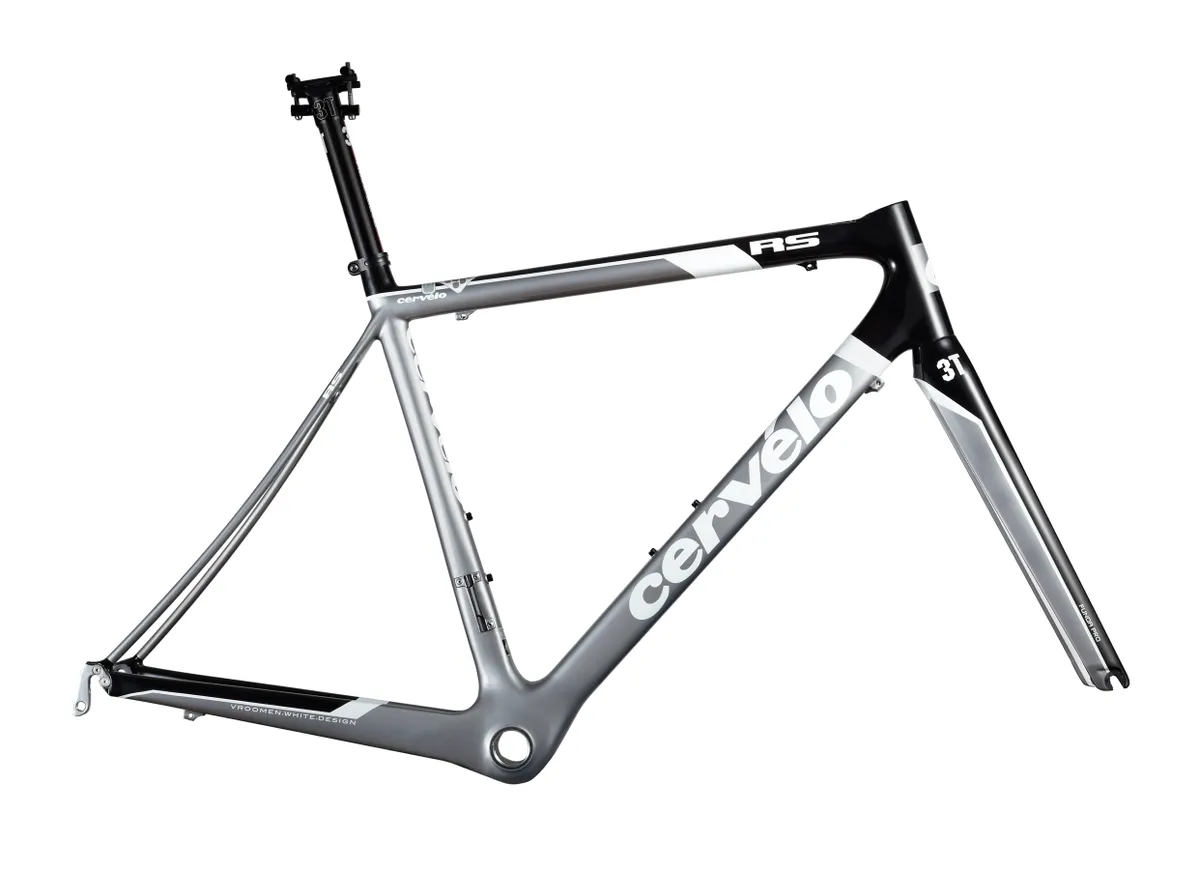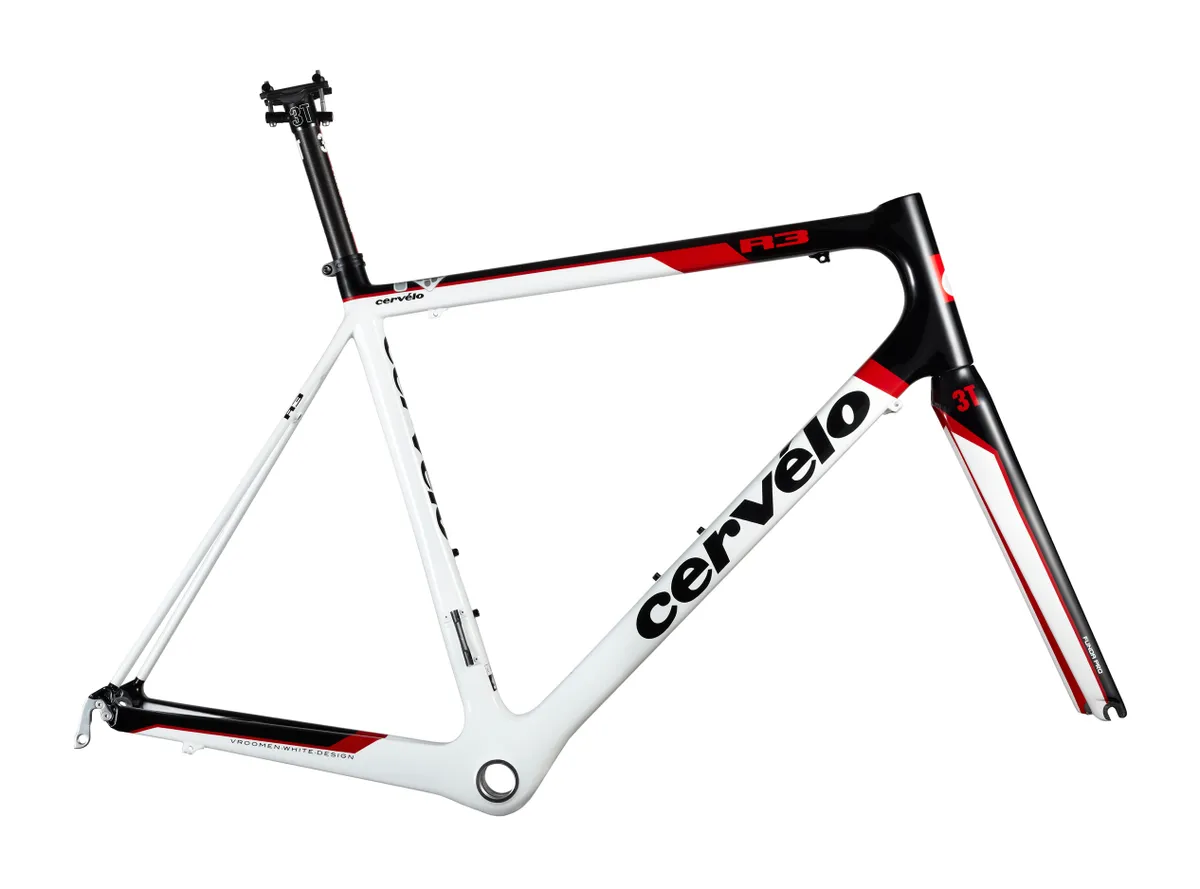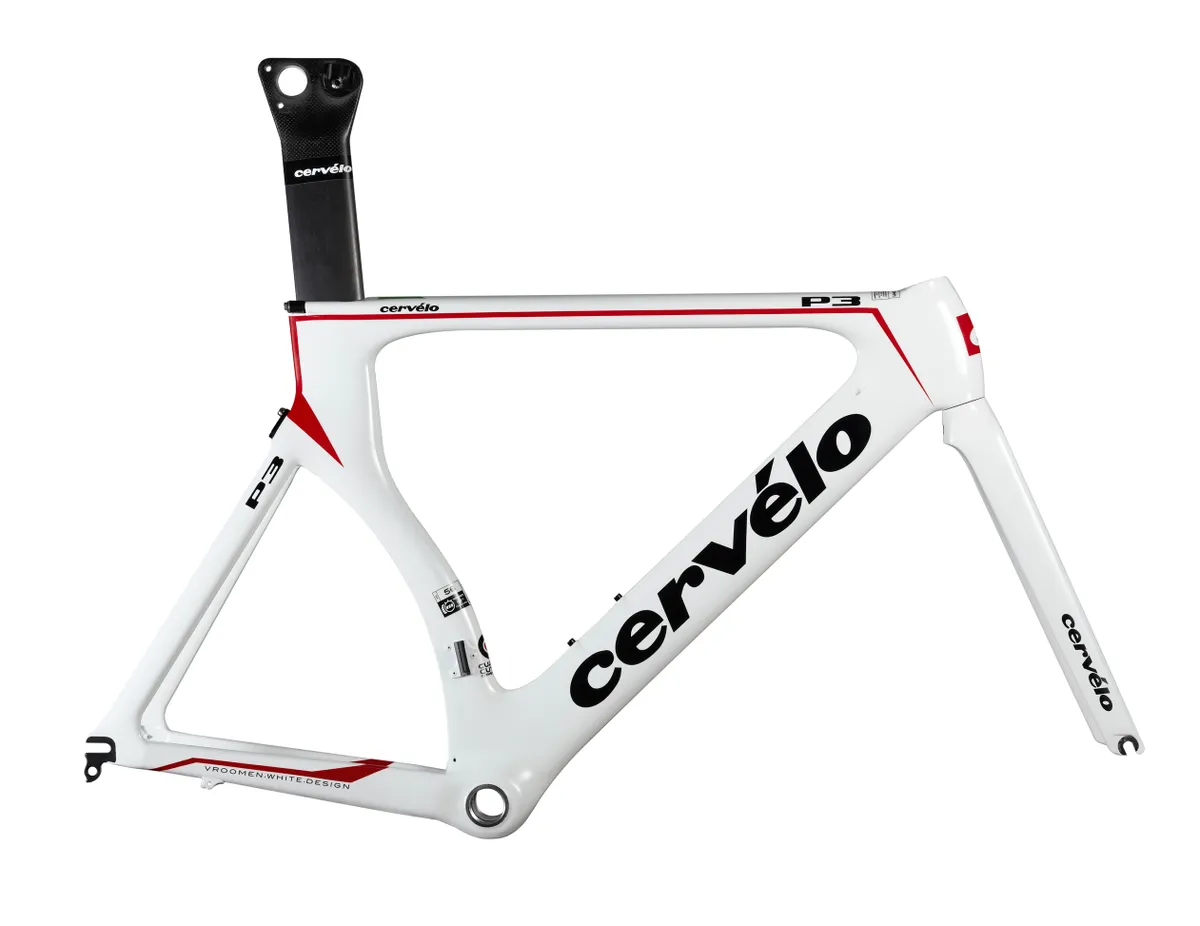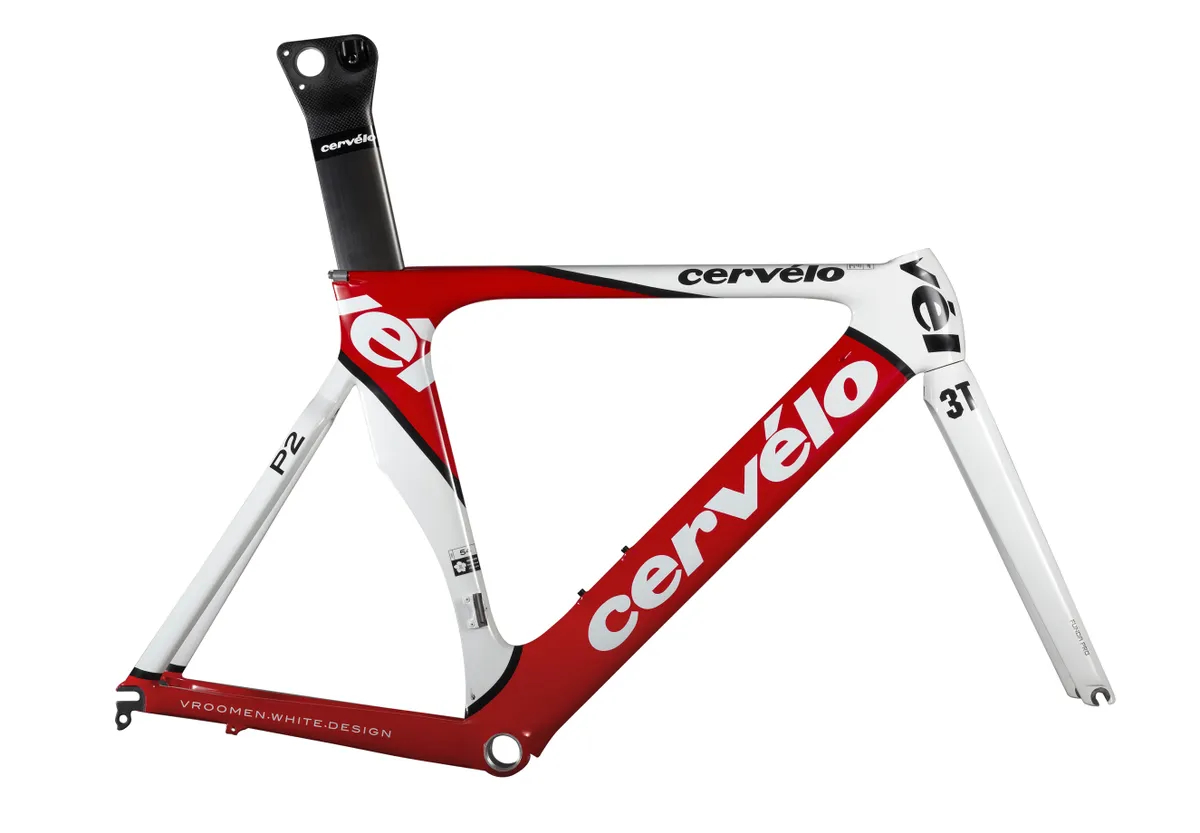Canadian company Cervélo has announced their 2010 range and the news is ... well, there aren't many changes from the 2009 crop. With the designs of their road and time trial frames remaining the same, the biggest change is new colour schemes.
Cervélo has kept their focus on aerodynamic performance, however. They are well known blazing the aero road trail to victory with Bjarne Riis' Saxo Bank-CSC teams for eight years, culminating with both Tour de France yellow and Olympic gold in 2008. There were both skeptics and fanboys galore when Cervélo announced it was ending its sponsorship with Saxo Bank-CSC in late 2008, embarking on its Test Team effort for the 2009 season. Now, several victories later - including stages of the Giro d'Italia and Tour de France - Cervélo seems to be on the right path as it takes direct feedback from its world-class riders and turns it into bikes the rest of us can enjoy.
All Cervélo models adhere to the strict (some might say stifling) standards of the world governing body, Swiss-based International Cycling Union (UCI).
"With no major re-designs, just an impressive new palette of colours to choose from for 2010, we think you’ll agree they look better than ever before," said Albert Steward of Cervélo's UK distributor Madison. "As per recent years' ranges, it’s framesets only for the UK as we believe 99 percent of Cervélo customers have their own preferences when it comes to build kits and would prefer a custom build."
Cervélo S3 frameset - £3,499
Weighing less than 1,000g/2.2lbs, the Cervélo S3 can claim to be the lightest aero frame in the world; its razor-thin seat stays make it even more aero, and compliant (think R-series).
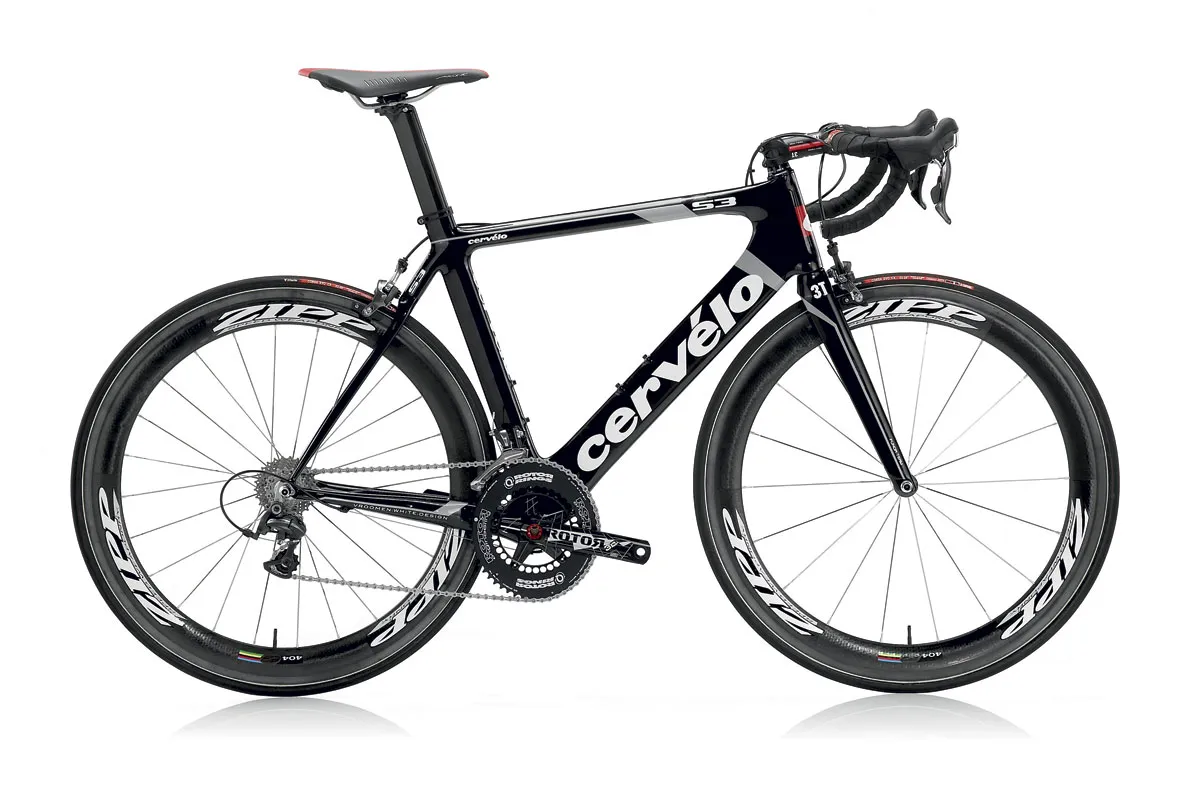
As the pioneer of aero road bikes, Cervélo continues to evolve with input from members of the Cervélo Test Team. According to the company, aero road frames are the most difficult frames to design, as they have to be everything in one: aero, light, stiff, and comfortable.
For the S3, the engineers at Cervélo used the R3 seatstay technology, rotated the stays 90 degrees and gave them a proper Cervélo aero shape. This reduces the weight, increases the ride comfort and improves the aerodynamics.
Sounds simple, but the structural design is extremely complex, which is why only Cervélo has such stays. The chainstays were also redesigned to optimise aerodynamics. Finally, the cable routing system (ICS3) is the first to have cable entries through the top of the top tube without sacrificing shifting performance.
As the S3 is more aero than most of the full time trial bikes on the market, this offers true versatility without the need for a second bike. Of course, for regular time trial use, a dedicated bike is still a better choice, thanks to the 78 degree seat tube angle and dedicated geometry.
Cervélo S2 frameset - £2,199
The Cervélo S2 is the next generation of the Soloist Carbon, already having the reputation for being the ultimate pro bike with a long list of victories. With Cervélo's experience, it's possible to add comfort and performance in the same model. The S2 is a study in light weight, stiffness, strength and comfort.
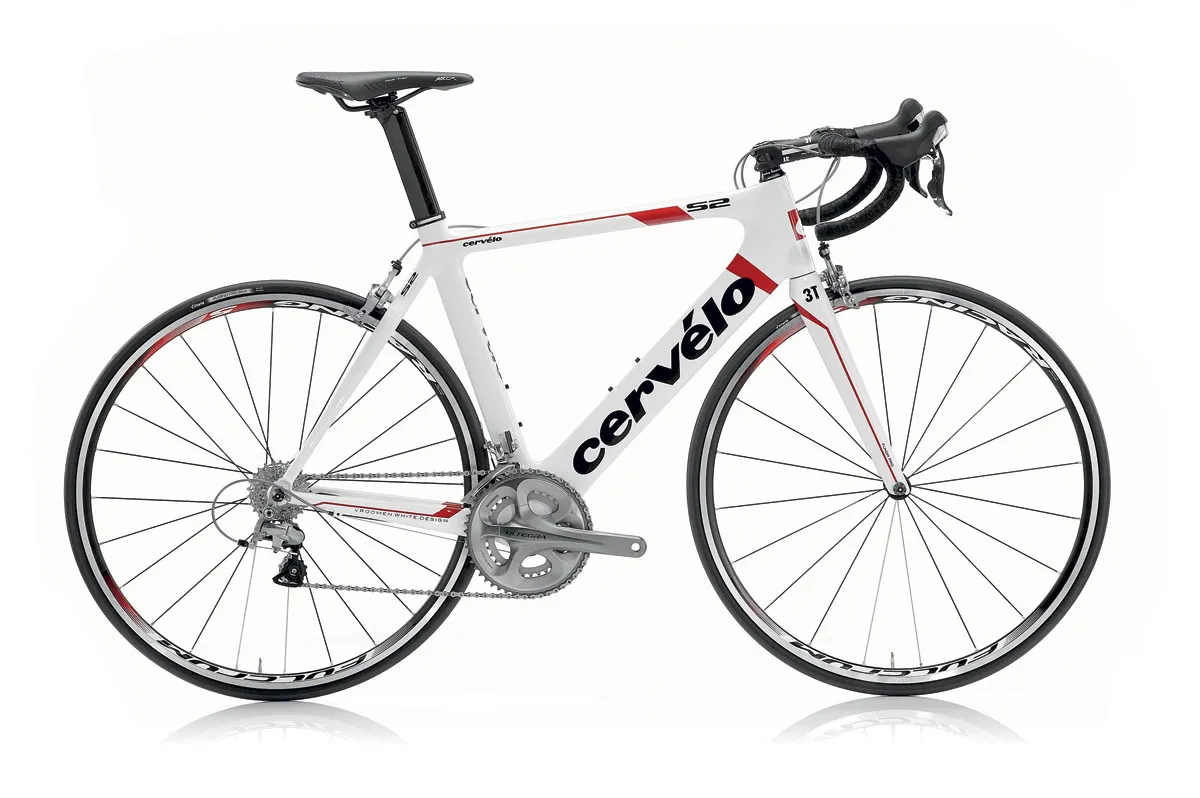
This may explain why only the Cervélo Test Team used aero frames at the early season cobblestone races. While for some races the R-series may still be better, to know that the S2 (and the even more compliant S3) excel even on the cobblestones shows you can have all the usual characteristics of a great frame AND aerodynamics on top of it. Five Cervélo Test Team riders finished in the top 20 of this year's Paris-Roubaix, with Thor Hushovd on the podium.
Cervélo S1 frameset - £999
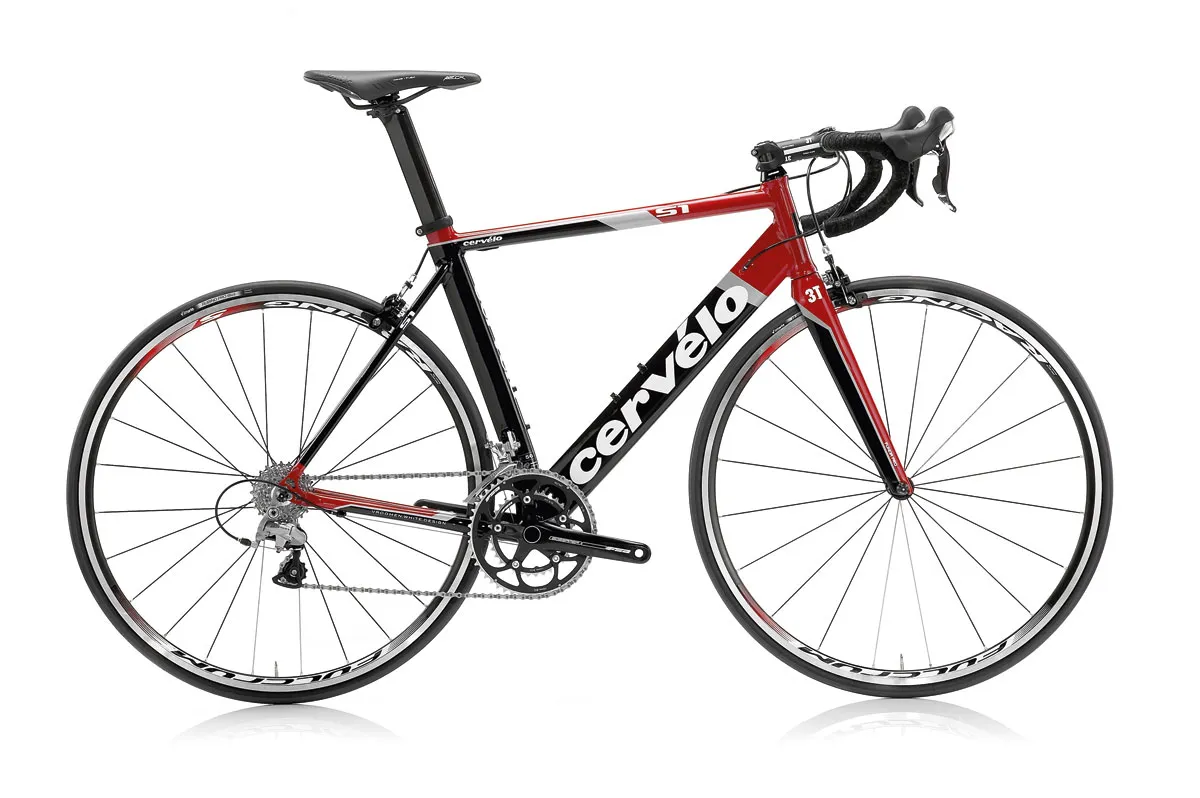
The aluminium S1 is the most affordable full-aero road bike on the market, formerly the Soloist Team, has chaulked up victories in Paris-Nice, Critérium International, Liège-Bastogne-Liège, Tour de l’Avénir and many other races.
Cervélo R3-SL frameset - £2,999
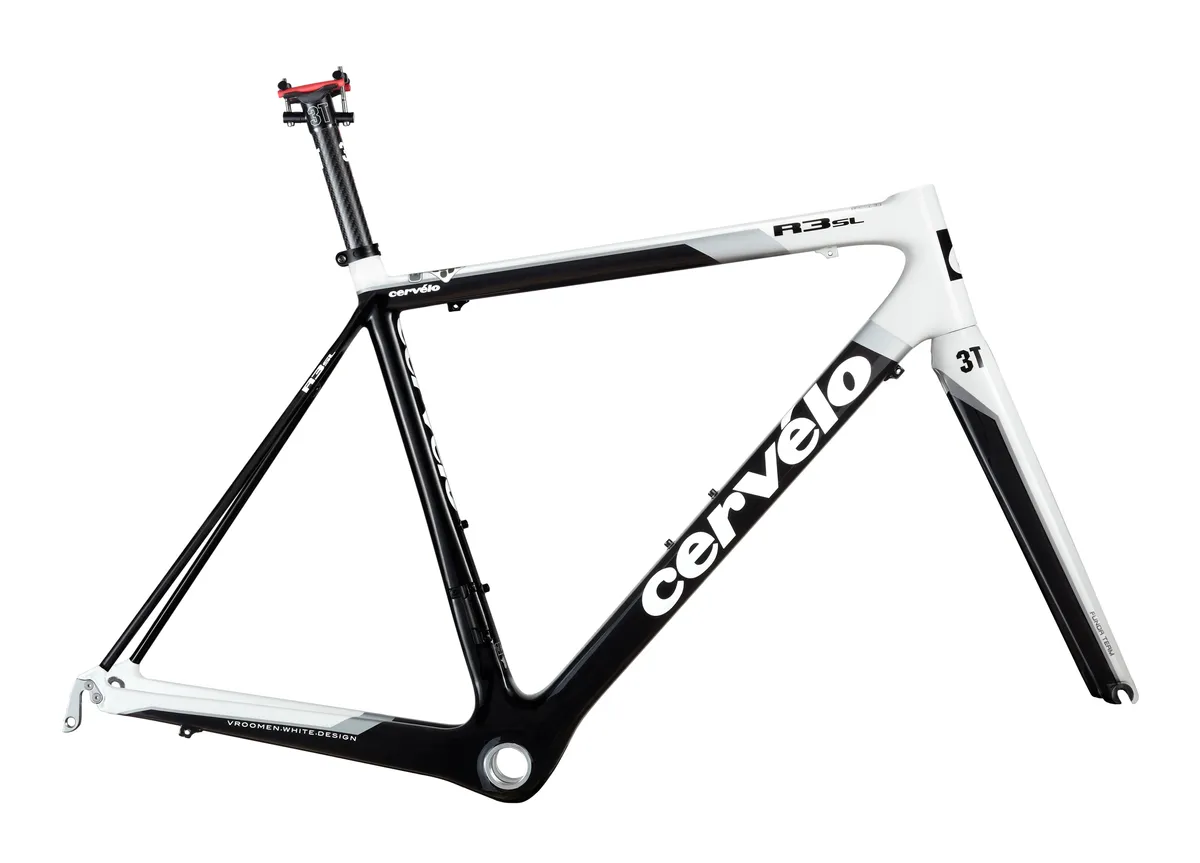
Spaniard Carlos Sastre's Tour de France-winning choice, designed with Cervélo's 'squoval' (square/oval) down tube and chainstays for the highest possible stiffness-to-weight ratio when climbing, something the Spaniard has proven in the mountains of France and Italy the past year.
The 900g R3-SL is essentially the popular R3 on a 100g diet, losing none of its road flare and snap.
Cervélo P4 frameset - £3,499
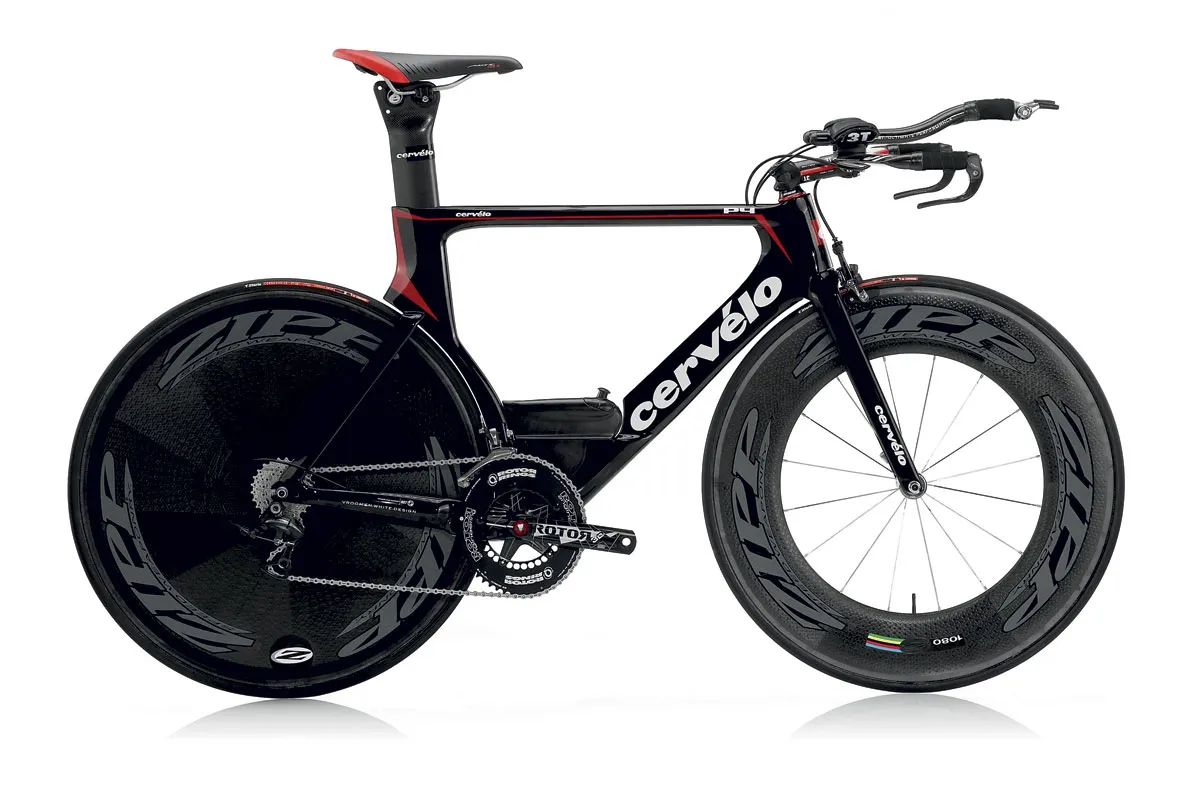
Cervélo launched the P4 during the 2008 Interbike show follwoing three years of testing. The Canadian company calls the P4 the world's first fully-integrated aero time trial bike.
The P4 is the successor to the popular time trial machine, the Cervélo P3. As the P3 is still the fastest bike available three years after its introduction, Cervélo spent millions spent in research and development and over two months of intensive testing at the San Diego Low Speed Wind Tunnel to make sure the P4 is the fastest bike ever in the wind tunnel, including both UCI-legal and illegal bikes.
“The P4 is the biggest leap we have ever made in aero bike technology,” said Phil White, co-founder of Cervélo. “The P series has evolved significantly over the last decade, making it a real challenge to keep finding improvements. With the P4, the mandate was to make it significantly faster than the P3 while achieving equivalent or better performance relative to stiffness, power transmission, low weight and comfort. I’m pleased to report that we have met those goals.”
According to White, the key to the performance of the P4 lies in the frameset’s integrated design. This System Engineering approach, which considers the frame, components, wheels, hydration and the rider together, generates substantially reduced drag values in virtual (CFD) and physical wind tunnel testing. Highlights of the P4 system include:
Optimised aero tube shapes - The aero profiles of the P4’s tubes are completely new, improving airflow attachment and reducing turbulence relative to other designs. In addition, the new asymmetric aero chain stays generate very low drag values, particularly in cross-wind environments, compared with chain stay designs from earlier P-series and competitor models. Finally, the seat stays are pitched forward to reduce frontal surface area and their joints with the seat tube are optimised for maximum aerodynamic efficiency.
Fork - The custom fork, developed by Cervélo, is integrated seamlessly into the head tube and down tube. This feature was first conceived by Cervélo in 1995 and comes to fruition now on the P4. Cervélo also invested significantly to optimise the spacing between the tires and wheels, the frame and the fork. This is a very complex area aerodynamically and Cervélo engineers tested over 75 different designs during the development process. The result is a significant reduction in drag values generated in this section of the bike.
Front wheel cut out - Cervélo advanced the front wheel cut out back in 1995, but in subsequent testing the company found it not to be the fastest design. So despite current trends the P4 does not have a front wheel cut out, as Cervélo have never seen one that works. While front wheel cut outs can show good drag values in the tunnel, this is only the case because there, the front wheel is perfectly in line with the down tube. In reality, the rider constantly makes small steering adjustments, which stalls the airflow onto the down tube and increases the drag.
Rear brake - The P4’s custom rear brake is fully designed and developed by Cervélo. It is positioned behind -- rather than underneath -- the bottom bracket as is commonly done (and which significantly increases the frontal area and thereby the drag). Thanks to the structural carbon brake booster, the brake has the same power and modulation as a Shimano Dura-Ace brake while being 30 percent lighter. The brake booster is easy to remove for full brake service and allows access to the brake mechanism for quick adjustments on the road.
Hydration - Traditional bottle shapes corrupt the efficiencies of proper airfoil tubes. The 570ml water bottle on the P4 is designed so it does not disrupt the airflow, and it contains more fluid than a standard water bottle so it is more practical. The only downside that we've experienced is that it takes some practice to grab and reinsert into the frame cage.
The bottle is refillable on the fly, important for longer races. For those using two types of fluids in races, Cervélo recommends a set-up including this P4 bottle plus a standard bottle cage attached to the aerobars. Having a standard bottle in-between the arms on the aerobars makes it easy to hydrate, and there is no aerodynamic penalty. It also reduces the need to refill the P4 bottle, as you can opt to have a high-density energy drink in the P4 bottle and water in the aerobar-mounted bottle (which you renew as you race along). Additional P4 bottles are also available.
Cervélo T3 frameset - £2,299
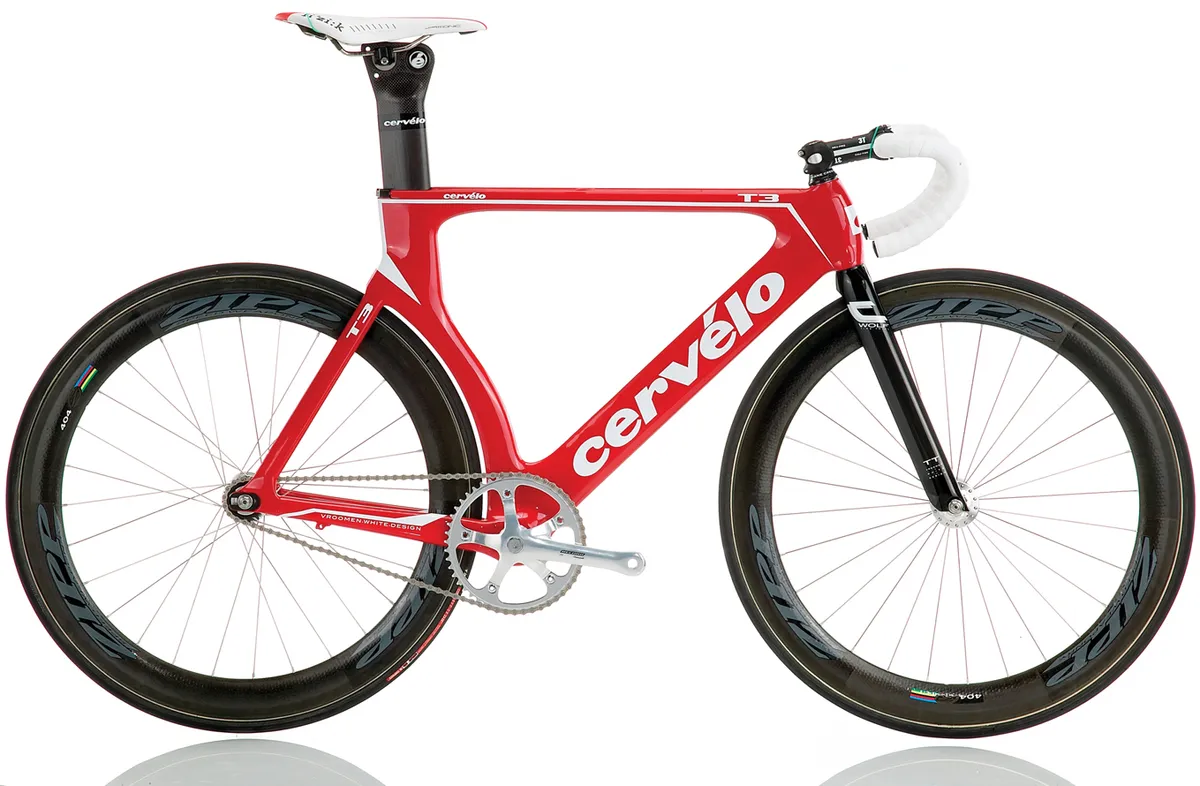
Cervélo used the results from its P3 aerodynamic and carbon development to produce the T3, a lightweight package weighing 500-1000g less than other track frames.
Dominating the Points race at the Beijing Olympics, the P3 track frameset took five of the top-10 spots, including Gold and Silver. In the Team Pursuit, Denmark took Silver on the same bike. Where most manufacturers use different frames for their pursuit and sprint stars on the track, Cervélo uses one and the same frame because the P3 Track has proven to be a perfect combination of light weight, stiffness and aerodynamics.
This also represents a great opportunity for Cervélo customers; you can invest in one great track bike and use it for all events, rather than having to divide your budget over two bikes.
For all of BikeRadar's Eurobike coverage, click here.
You can follow BikeRadar on Twitter at twitter.com/bikeradar.
